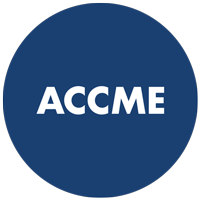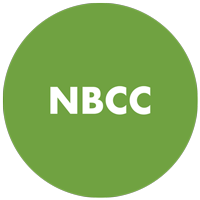Leadership
Organizational Excellence
MTL1 - The Future of Mental Health Treatment
Monday, May 5, 2025
3:15 PM - 4:15 PM ET
Location: Terrace Ballroom I
During her 30-year tenure at the helm of Beck Institute for Cognitive Behavior Therapy (BI), Dr. Judith Beck has been both the custodian of her father’s legacy and a champion for progress. Speaking from her vast clinical, administrative and teaching experience, she will provide valuable insights into the current landscape of mental health care and where she sees opportunities — and reasons for caution.
She will discuss how mental health care is increasingly integrated into a wide range of settings. BI has pioneered cognitive behavior therapy (CBT) training in schools, forensic settings and medical environments, training teachers, corrections officers, nurses, peers and paraprofessionals to provide essential support. BI's experience demonstrates the potential for CBT to not only improve mental health outcomes but also reduce overall health care costs, making the financial case for its wider integration.
As the field moves toward a recovery-oriented, strength-based model of care, it is crucial to emphasize that mental health treatment should focus not just on symptom reduction but on helping individuals thrive. This approach can extend beyond those facing mental health challenges, offering a protective mechanism for those at risk and enhancing the wellbeing of individuals without mental health conditions.
Considersations regarding individual demographics, backgrounds and experiences play a vital role in this evolving landscape, with psychological research increasingly emphasizing approaches that are welcoming and mindful. CBT and other evidence-based therapies must continue to adapt to meet the needs of the global population, ensuring that treatment is effective across many different contexts. Dr. Beck will discuss how Beck Institute takes a flexible, contemporary approach to CBT, renouncing rigid treatment manuals and instead tailoring therapy to fit the unique needs of each individual.
Dr. Beck will conclude by discussing how emerging technologies such as AI, apps, computer-assisted therapy and VR offer promising tools to enhance treatment delivery. However, careful attention to ethical concerns, privacy and fairness is essential to ensure these technologies benefit all individuals in need. This presentation will explore these developments and advocate for continued research to ensure treatment approaches are always backed by sound science.
She will discuss how mental health care is increasingly integrated into a wide range of settings. BI has pioneered cognitive behavior therapy (CBT) training in schools, forensic settings and medical environments, training teachers, corrections officers, nurses, peers and paraprofessionals to provide essential support. BI's experience demonstrates the potential for CBT to not only improve mental health outcomes but also reduce overall health care costs, making the financial case for its wider integration.
As the field moves toward a recovery-oriented, strength-based model of care, it is crucial to emphasize that mental health treatment should focus not just on symptom reduction but on helping individuals thrive. This approach can extend beyond those facing mental health challenges, offering a protective mechanism for those at risk and enhancing the wellbeing of individuals without mental health conditions.
Considersations regarding individual demographics, backgrounds and experiences play a vital role in this evolving landscape, with psychological research increasingly emphasizing approaches that are welcoming and mindful. CBT and other evidence-based therapies must continue to adapt to meet the needs of the global population, ensuring that treatment is effective across many different contexts. Dr. Beck will discuss how Beck Institute takes a flexible, contemporary approach to CBT, renouncing rigid treatment manuals and instead tailoring therapy to fit the unique needs of each individual.
Dr. Beck will conclude by discussing how emerging technologies such as AI, apps, computer-assisted therapy and VR offer promising tools to enhance treatment delivery. However, careful attention to ethical concerns, privacy and fairness is essential to ensure these technologies benefit all individuals in need. This presentation will explore these developments and advocate for continued research to ensure treatment approaches are always backed by sound science.
Learning Objectives:
- Explain how CBT can improve job performance and clinical outcomes across many settings and providers.
- Describe a recovery-oriented approach to care.
- State three ways to adapt treatment for individuals who have different backgrounds and experiences.
.jpg)
Judy Beck, PhD
President
Beck Institute
Bala Cynwyd, Pennsylvania









